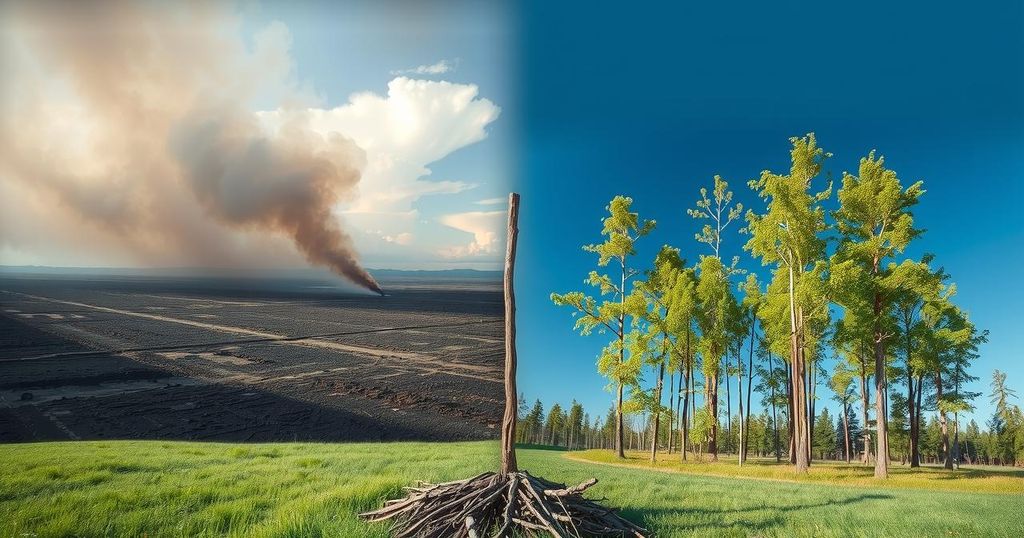Farmers in Bolivia face a critical choice between continuing harmful slash-and-burn agriculture practices that exacerbate climate change or implementing reforestation efforts to combat worsening drought conditions. Last year’s wildfires resulted in devastating forest loss and significant carbon emissions. Community-led initiatives, such as tree-planting programs, highlight a potential path toward sustainable practices in the face of these challenges.
In Bolivia, farmers are at a crossroads: they can continue their practice of slash-and-burn agriculture or pivot towards reforestation efforts to combat advancing droughts. Last year, the region experienced catastrophic wildfires that consumed approximately 10.7 million hectares of forest, a figure comparable to the size of Portugal, according to the Bolivian Institute for Forest Research (IBIF). These incidents resulted in significant loss of life and unprecedented carbon emissions, as noted by the European Union’s climate monitoring body.
Despite the severity of last year’s wildfires, which resulted from controlled burns merging with protracted drought caused by climate change, farmers like Julia Ortiz understand the necessity of burning for agricultural purposes. Ortiz, an Indigenous sesame farmer, recounted her experience with fires getting out of control, emphasizing that many farmers rely on this method for survival. “It can happen to anybody. Most of us live off farming and we must do burns,” stated Ortiz, sharing the hardships faced by her community.
The recent devastation affected farmers severely, with individuals like Carmen Pena expressing despair over lost crops and the uncertainty of their future. “I don’t know how we will survive because our food is running out,” lamented Pena, reflecting the dire circumstances many face when agriculture is the sole source of income. Rebuilding efforts are underway, yet some continue the harmful practice of lighting new fires.
The extent of the forest loss indicates strong pressure to extend agricultural land, with IBIF stating 63.6% of burned land was previously forested. David Cruz, a climate change specialist, criticized governmental leniency towards the offenders of land-clearing practices, issuing pardons and delaying compliance with environmental laws. Ortiz argues that the lack of machinery forces farmers to rely on burning as the only practical method for land clearing.
In response to ongoing droughts, local women have initiated an innovative tree-planting project utilizing techniques pioneered in Nepal. They create “bombitas,” small earth spheres filled with indigenous tree seeds, which are then airdropped over deforested areas using drones. Funded by Swiss NGO Swisscontact and the Flades foundation, approximately 250,000 bombitas are set to be deployed starting in March.
As they strive to restore forest cover, farmer and forestry technician Joaquin Sorioco emphasizes that reforestation is crucial for water retention, stating, “Without forests, we’ll have no water.” The Flades foundation’s director, Mario Rivera, noted that the fires catalyzed a much-needed awareness of the environmental impact of land-clearing practices. “We went through very difficult times,” Rivera said, but the situation has spurred a commitment to change.
In summary, Bolivian farmers are grappling with the decision to either continue destructive land-clearing practices or embrace reforestation efforts to address climate-related challenges. The repercussions of last year’s catastrophic wildfires underscore the urgency for sustainable agricultural practices, with community initiatives emerging as a hopeful response to restore balance. The ongoing dialogue on farming and environmental responsibility is essential for the region’s future.
Original Source: homenewshere.com




